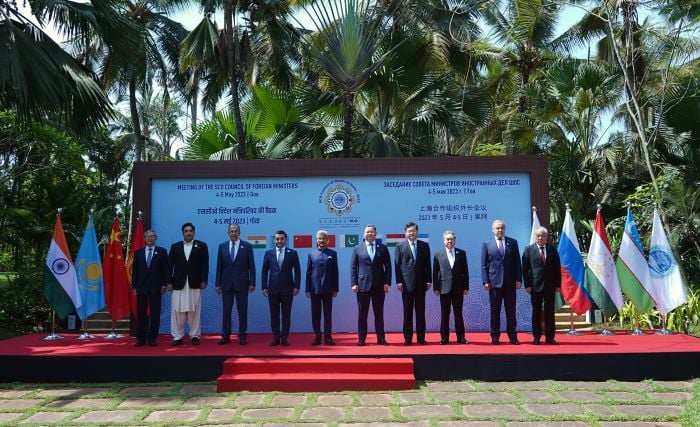Efforts to transition to trade in national currencies in the Shanghai Cooperation Organization (SCO) can no longer be stopped, according to Russian Foreign Minister Sergey Lavrov. During a meeting with his colleagues in India, Moscow’s top diplomat also discussed the similar initiative within BRICS.
Sergey Lavrov Convinced SCO Countries Will Switch to National Currencies, Won’t Rule Out Single Fiat
There is understanding about increasing the use of national currencies in settlements between the member states of the SCO, Russian Minister of Foreign Affairs Sergey Lavrov said after conferring with counterparts in Panaji, capital of the Indian state of Goa.
To achieve that, Lavrov believes participants can apply practices that are being formed in the Eurasian Development Bank, the Asian Bank for Reconstruction and Development, and the New Development Bank established by the BRICS bloc.

“All this was discussed. All of this is very relevant. All this is now being considered by the relevant departments, ministries of finance, central banks,” Lavrov was quoted as saying by the Tass news agency. He also emphasized:
This work is underway, and, in general, it cannot be stopped.
The head of the Russian diplomacy also reminded about the proposal put forward by President of Brazil Luiz Inacio Lula da Silva on the transition towards payments in national currencies in the BRICS group of emerging economies (Brazil, Russia, India, China, and South Africa).
The topic has been also discussed at the SCO meeting, including the creation of “some kind of aggregated currency” which, in Lavrov’s words, cannot be ruled out either.
“The main thing now is to consider practical issues that will make it possible to protect the cooperation of independent states,” he said, accusing the West of abusing its position in the global economy and the reserve currency status of the U.S. dollar and the euro.
The SCO, the world’s largest regional organization which unites China, Russia, India, Pakistan, and several Central Asian nations, is preparing to ditch the dollar in favor of settlements in the national currencies of members, its Deputy Secretary General Grigory Logvinov unveiled in a recent interview.
Despite intentions to move away from the greenback, however, the introduction of a common currency is not yet being considered by its members, the Russian diplomat noted. BRICS, arguably the world’s largest bloc by gross domestic product (GDP), also intends to initially promote the use of its national currencies.
Do you think the SCO and BRICS will eventually introduce new international currencies? Share your thoughts on the subject in the comments section below.
Image Credits: Shutterstock, Pixabay, Wiki Commons, Hussein Eddeb / Shutterstock.com
Disclaimer: This article is for informational purposes only. It is not a direct offer or solicitation of an offer to buy or sell, or a recommendation or endorsement of any products, services, or companies. Cryptox.trade does not provide investment, tax, legal, or accounting advice. Neither the company nor the author is responsible, directly or indirectly, for any damage or loss caused or alleged to be caused by or in connection with the use of or reliance on any content, goods or services mentioned in this article.




